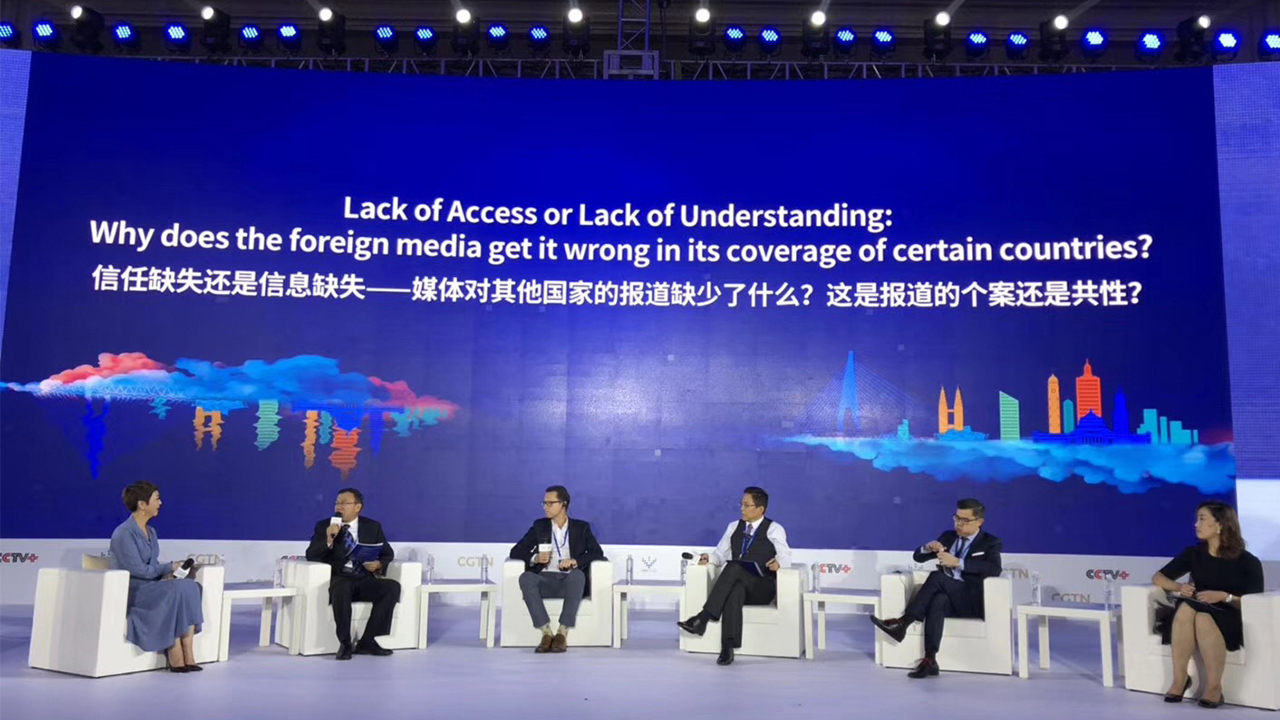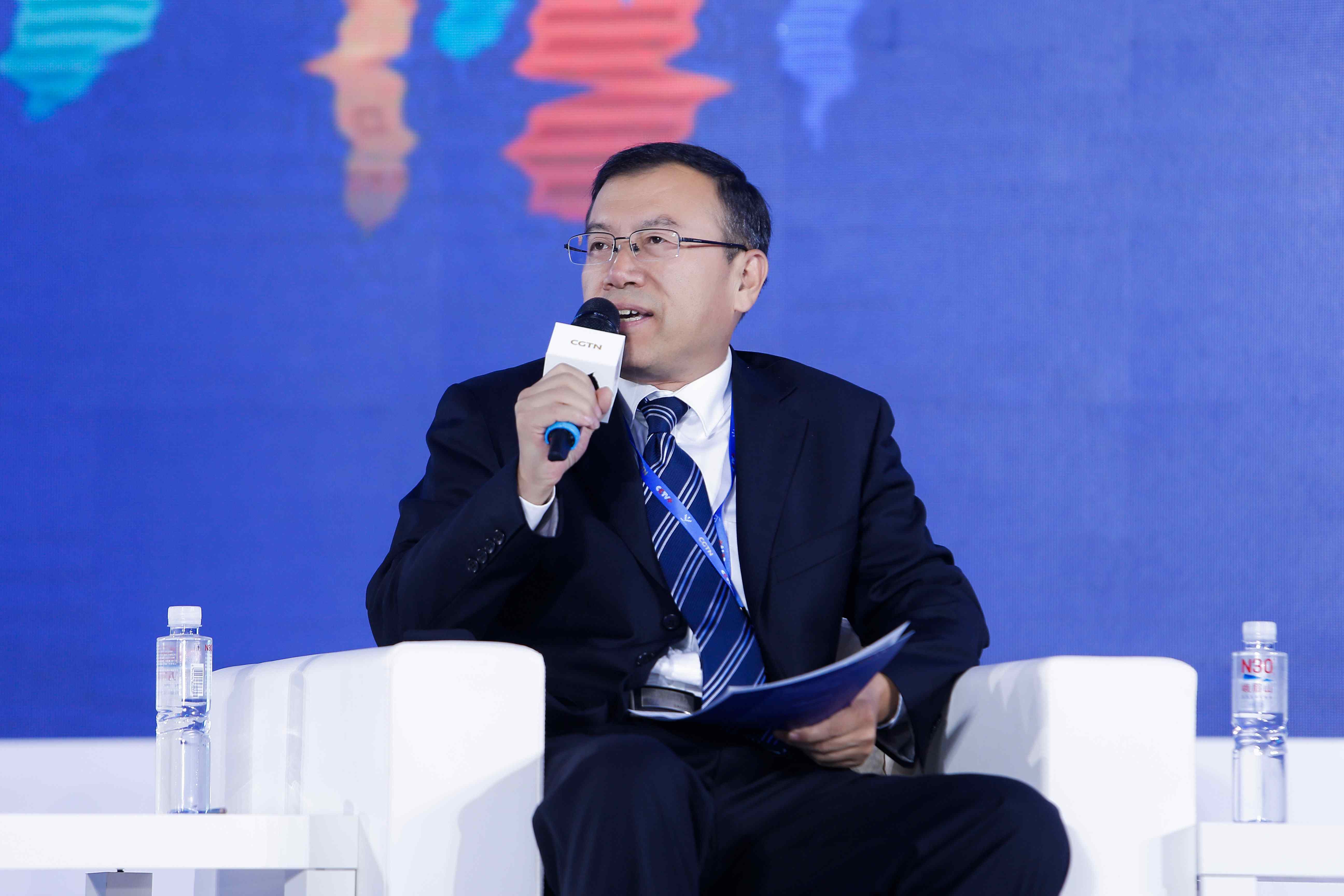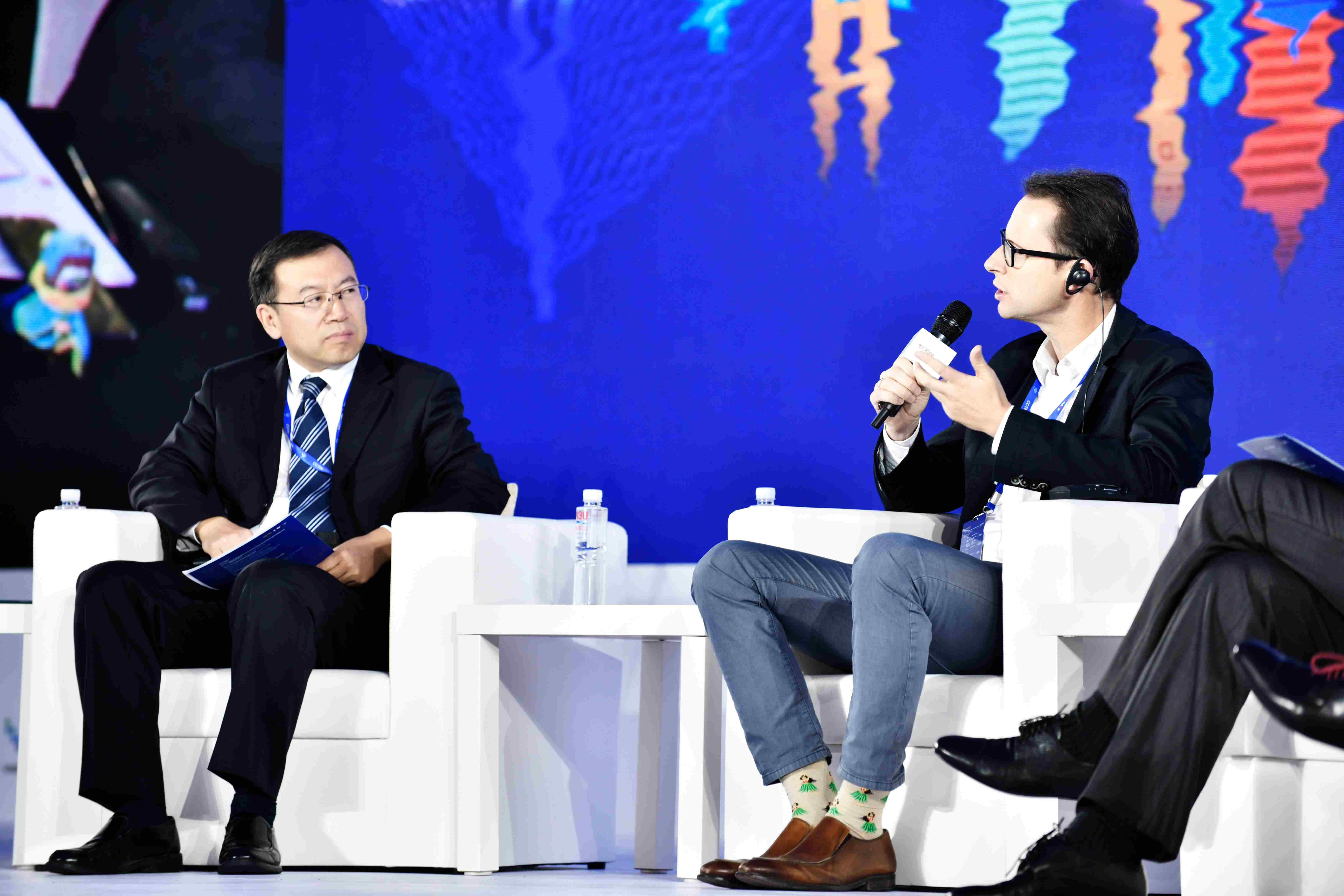
Culture
19:53, 16-Oct-2018
CGTN says will 'continue to dialogue with the world'
Updated
19:50, 19-Oct-2018
By Han Peng
55:02

Leading global media outlets gathered in China’s southwestern city of Chongqing on Tuesday, discussing how foreign media outlets can achieve "unbiased" news coverage in countries like China.
A heated debate took place as senior media managers from BBC, AFP, CGTN, News Asia and Phoenix participated in a panel discussion about the reasons why different media outlets tend to report very differently as they tell the complex China stories.
CGTN deputy director Yang Fuqing noted international coverage on China has been increased over the past few years and is becoming more positive than before.
But he pointed out that mainstream Western media like BBC and CNN are still doing "not enough" to achieve a balanced coverage on China.

CGTN's deputy director Yang Fuqing speaks during the panel discussion. /CGTN Photo
CGTN's deputy director Yang Fuqing speaks during the panel discussion. /CGTN Photo
Yang said the era of a significant lack of access to information about China has long gone, and that foreign media outlets can easily get plenty of information by sending reporters to China or searching on the Internet, and that the biases are therefore mainly caused by a lack of understanding.
Vivian Wu, BBC's Hong Kong Bureau Chief, responded that different political narratives and cultural contexts play a role in shaping the way different reporters tell the same story.
"When we are doing news in Hong Kong, sometimes even before you start asking your questions, people would first ask where you are from," Wu said, highlighting that the public is increasingly becoming aware of the fact that different backgrounds of journalists could result in different reports on the same event.
Lu Ningsi, Director of News of Phoenix InfoNews Channels, said while journalists are supposed to be professional, personal beliefs and preferences play a role in the coverage.
"It's impossible for a reporter to cover the news completely without bias because reporters are people in the first place," Lu said in the panel discussion.
Phil Chetwynd, AFP Global Editor-in-chief, echoed the same statement, saying this is why news organizations should "double down on quality, on-the-ground news reporting" in a bid to reduce biases caused by a lack of understanding.

AFP Global editor-in-chief Phil Chetwynd exchanging ideas with CGTN deputy director Yang Fuqing. /CGTN Photo
AFP Global editor-in-chief Phil Chetwynd exchanging ideas with CGTN deputy director Yang Fuqing. /CGTN Photo
Yang agreed with Chetwynd. He said when CGTN covers the China-US trade war, "we did a lot of maths, and provided a lot of facts and figures, instead of just making attacks and criticisms on the Trump Administration."
But Chetwynd also pointed out that a lack of access to information still affects news coverage in China. He said language barriers, difficulties in getting interviews with senior officials and a shortage of workforce to do on-the-ground reporting in a vast country like China all contribute to the lack of access.

CGTN anchor Tian Wei hosting the panel discussion. /CGTN Photo
CGTN anchor Tian Wei hosting the panel discussion. /CGTN Photo
Yang said his news organization is willing to provide more perspectives on global news, particularly in an era where complicated changes are taking place not just in China, but also in the global political and economic landscape.
"We should all advance with times, and CGTN will continue to dialogue with the world,” Yang added.
(Cover: Panel discussion over reducing biases in media reporting, as CGTN hosts annual Global Media Summit in Chongqing. /CGTN Photo)

SITEMAP
Copyright © 2018 CGTN. Beijing ICP prepared NO.16065310-3
Copyright © 2018 CGTN. Beijing ICP prepared NO.16065310-3